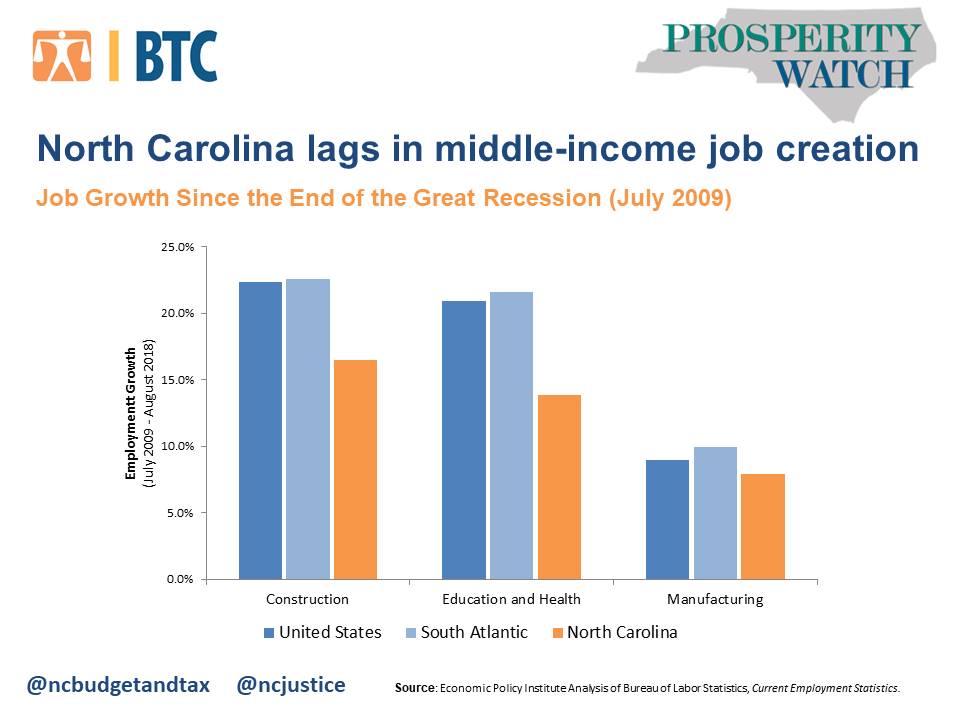Prosperity Watch (Issue 93, No 1)
October 2, 2018
Middle-income jobs are essential to the long term health of a state’s economy, and North Carolina has not generated nearly enough of these opportunities during the current growth period. The lack of middle-income jobs is a national problem, but it is particularly acute in North Carolina, a trend that threatens to drive an economically damaging wedge between highly paid professional employees and everyone else.
Three of the industries that have formed the traditional bedrock of middle-income employment in North Carolina have lagged behind the nation, and our region, since the economy officially exited the Great Recession in July of 2009. Construction jobs have grown by 16.4 percent over that period in North Carolina, well below the 22.6 percent expansion in the South Atlantic and 22.4 percent nationwide. Education and Health employment has grown by more than 20 percent nationally and in our region, but North Carolina has only posted a 13.9 percent jobs gain in these industries. Manufacturing has been slow to grow across the country with an increase of only 9 percent nationwide and 9.9 percent in the South Atlantic, but North Carolina’s 7.9 percent employment gain has been significantly below even those relatively meager job gains.
The lack of middle income job creation is leading to an increasingly divided employment market, with excellent opportunities for highly trained professionals but few options that actually pay a living wage for everyone else. Emblematic of this divide, the two industries that have seen the fastest growth in North Carolina are Professional and Business services, which saw employment grow by 41.3 percent since the start of the recovery, and Leisure and Hospitality, which expanded by 27.6 percent. Jobs in the first industry generally pay very well, offer substantial benefits, and create opportunities for career growth, while positions in the latter industry typically come with none of these desirable qualities.
If these trends continue, with most of the growth clustered at the very top and the very bottom of the employment ladder, it will become increasingly difficult for people to work their way up from entry-level positions into jobs that can support a family. That kind of divide is not only bad for the majority of people who would become trapped in low-paying jobs, it will harm overall growth as more people lack the opportunities to maximize the economic value of their skills and energy.
 Justice Circle
Justice Circle 
